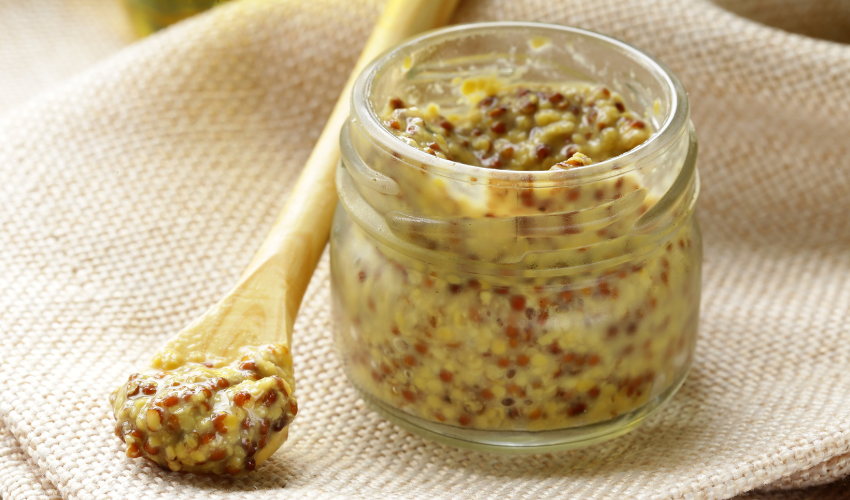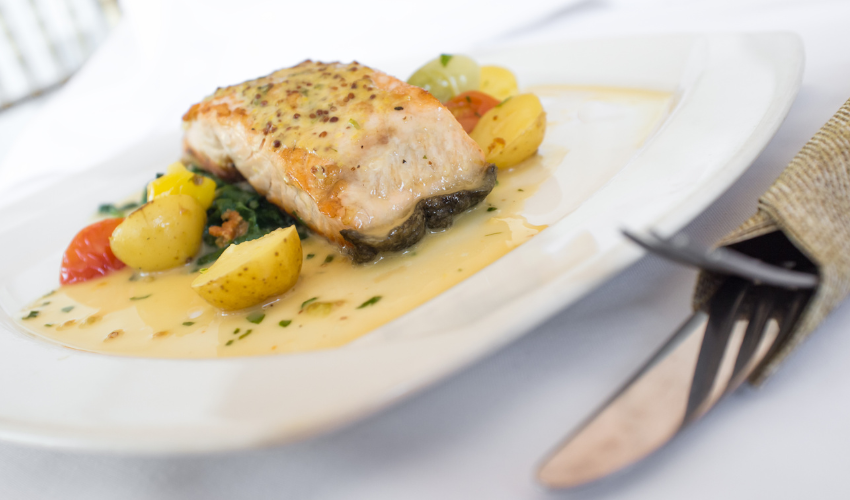Dijon mustard is a staple condiment in kitchens around the world. Known for its sharp, tangy flavor and distinctive yellow-brown color, it’s a favorite topping for sandwiches, hot dogs, and burgers. But have you ever wondered why it’s called Dijon mustard? What makes it different from other types of mustard? In this article, we’ll explore the history and origin of this mustard, as well as its unique flavor profile and uses.
The Origin of Dijon Mustard
Dijon sauce was first created in the city of Dijon, France in the 19th century. It was originally made using verjuice, an acidic juice made from unripe grapes, instead of vinegar. However, when vinegar became more widely available, it replaced verjuice as the primary acid in the recipe. The mustard seeds used in Dijon are typically brown or black, which gives it a spicier flavor than other mustards.
How Did Dijon Mustard Get Its Name?
While Dijon sauce is named after the city of Dijon, it wasn’t always called that. In fact, the mustard was originally known as “moutarde de Dijon,” or mustard from Dijon. The name “Dijon mustard” didn’t become popular until the 20th century, when the condiment began to gain popularity outside of France.

The Unique Flavor Profile of Dijon Mustard
One of the defining characteristics of this mustard is its sharp, tangy flavor. This is due to the use of brown or black mustard seeds, which have a higher concentration of the volatile compounds that give mustard its characteristic pungency. Dijon sauce also typically contains white wine, which gives it a slightly sweet and acidic flavor that pairs well with a variety of foods.
How Is Dijon Mustard Made?
This mustard is made by grinding brown or black mustard seeds and mixing them with vinegar, salt, and other flavorings like white wine, honey, or herbs. The mixture is then allowed to sit and ferment for several hours, which allows the flavors to develop. After fermentation, the mustard is strained to remove any solids and then bottled for use.
The Versatile Uses of Dijon Mustard
This mustard is a versatile condiment that can be used in a variety of ways. It’s a popular topping for sandwiches, hot dogs, and burgers, and can also be used as a marinade for meats and vegetables. Mustard can be mixed with mayonnaise to make a tangy dipping sauce, or added to salad dressings for an extra kick of flavor.

What Makes Dijon Mustard Different from Other Mustards?
While there are many types of mustard, Dijon sauce is unique in its use of brown or black mustard seeds and white wine. This gives it a spicier, more complex flavor than other mustards, which often use yellow mustard seeds and vinegar. This mustard also has a distinctive yellow-brown color that sets it apart from other types of mustard.
FAQs:
- Is Dijon sauce spicy?
Yes, this mustard is spicy due to the use of brown or black mustard seeds, which have a higher concentration of the volatile compounds that give mustard its characteristic pungency. - Can Dijon sauce be used as a substitute for other mustards?
Yes, this mustard can be used as a substitute for other types of mustard in recipes. However, keep in mind that its spicier flavor and slightly sweet taste may alter the overall flavor of the dish. - What dishes pair well with Dijon sauce?
This mustard pairs well with a variety of dishes, including sandwiches, hot dogs, burgers, roasted meats, and vegetables. It can also be used in salad dressings and marinades. - Can Dijon sauce go bad?
Like all condiments, this mustard can go bad over time. It’s important to check the expiration date on the bottle and to store it in the refrigerator after opening to extend its shelf life. - Is Dijon sauce gluten-free?
Most brands of this mustard are gluten-free, but it’s important to check the label to ensure that it doesn’t contain any gluten-containing ingredients.
Conclusion
Dijon mustard is a unique condiment with a rich history and distinctive flavor profile. Its origins in the city of Dijon, France, and the use of brown or black seeds and white wine set it apart from other types of mustard. Whether you’re using it as a topping for your favorite sandwich or as a marinade for roasted vegetables, Dijon sauce is a versatile and flavorful addition to any kitchen.






















